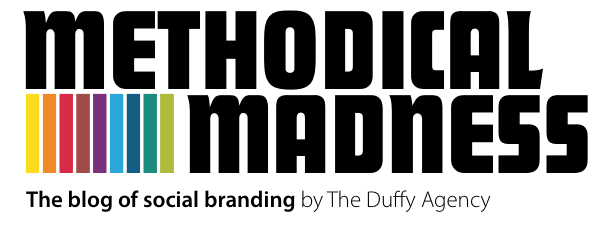Are there lessons to be learned from @Sweden?
 Thursday, June 14, 2012 at 6:57PM
Thursday, June 14, 2012 at 6:57PM By now, you have probably already heard about the buzz/controversy around the @Sweden twitter account. If not, here’s a quick synopsis: In an effort to help boost the Sweden brand and attract tourists, the Swedish tourism board allows a Swedish citizen to take over Sweden’s official tweeter stream (@Sweden) for a week. The latest tweeter is a woman named Sonja Abrahamsson who has used the platform to gain international notoriety (some would say infamy) for tweeting things like “why do people hate Jews” and a Photoshopped pic of Freddy Mercury behind a strawberry salad with the title "hungry gay with aids.” Mercury, the former lead singer of Queen, died of complications brought on by AIDS in 1991. (To be fair, the vast majority of her tweets are innocuous. )

Letting Swedish citizens tweet uncensored on behalf of the country was an idea developed by Stockholm agency, Volontaire. They deemed it as “the only way to paint a fair picture of Sweden for the rest of the world.” The idea garnered praise and even a couple CLIO awards for PR. And up until this week, about 30,000 people were following the stream. Currently, the stream is up to 52K + and climbing.
There have been Twitter crisis in the past. The Red Cross #gettinslizzerd and the Chrysler F-bomb incident come to mind. In both those cases, there were apologies and the tweets were deleted. But in this case, the Swedish tourism board is standing behind their idea saying that they are not going to censor one of their curators.
In truth, this blog post started as advice to the Swedish tourist board on how to handle this “crisis.” I wrote a blog about how to recover from a damaging tweet or post about a year ago. However, by not backing down, I think they are doing the right thing. After all, the essence of this campaign was to create “the world’s most democratic Twitter account.” By censoring Sonja, they would immediately jeopardize the entire campaign. In fact, they explained to the Wall Street Journal, “Some of [the @sweden curators] have been talking about music, some of them have been talking about food...Sonja is more focused on her own brand of humor and asking probing questions.” Moreover, in a week, there will be someone new (good luck following that act, btw) and this will probably all die down.
I think the bigger question might be this: is it a good idea to crowd source your brand? That is, is it a good idea to give up this much control of your brand?
According to the entry summary for the CLIO Awards, the purpose of this campaign was to position the country as progressive with the core values “Open, Authentic, Caring and Innovative.” From my perspective they are definitely open, authentic and perhaps innovative, but I’m not sure about the caring part (at least regarding Sonja’s tweets). Let’s be clear, brands are not created by companies or advertising agencies. A brand is created by consumers. How they think and feel about a product, service, company or individual is what makes the brand. Perception is reality. Agencies and their clients can only help guide those perceptions. In this case, the agency and client gave up that guiding control. Now, instead of extolling the brand’s core values, some of Sonja’s tweets are creating the opposite perception.
Although many have weighed-in on the efficacy of this campaign, the only way to gauge if this campaign was successful and if Sonja did any real damage (or helped) is to measure brand perception before and after the campaign, and before and after Sonja’s sojourn specifically. Yes, @Sweden’s Twitter followers are up and this did succeed in getting the attention of the social media world. It could be that most people around the world are not offended by her remarks. Maybe, as one tweeter stated, it’s only Americans. However, Americans make up one of Swedish tourism’s target groups (along with Chinese). And right now, if the national news, TV and individual tweeters are any indication, many Americans don’t seem to have a good perception of Sonja. Whether this will affect Sweden’s national brand remains to be seen.
What do you think? Should the Swedish tourist board have handled this differently? And what do you think about the idea of handing off control of the brand message? Let us know in the comments section.
Kevin Duffy is the Creative Director for The Duffy Agency's Boston office.
 Email Article |
Email Article |  Post a Comment | tagged
Post a Comment | tagged  branding,
branding,  social media policy,
social media policy,  twitter | in
twitter | in  Brand,
Brand,  branding,
branding,  content strategy,
content strategy,  social media,
social media,  social media policy,
social media policy,  twitter
twitter 
Reader Comments